EU Leaders Approve Ukraine Accession Talks
- EU leaders approved the opening of accession talks with Ukraine, presenting, in Ukrainian President Volodymyr Zelenskyy’s words, a “victory of Ukraine…a victory that motivates, inspires, and strengthens.” (Politico; see also Euractiv, The Brussels Times, EU Observer, Le Soir)
- Hungarian Prime Minister Viktor Orbán, unwilling to agree to accession talks with Ukraine, left the room during the talks, allowing the remaining 26 EU leaders to approve Ukraine accession talks unanimously. (Politico)
- The plan to bypass Orbán’s resistance to opening accession talks was a coordinated effort of EU leaders, involving private meals and German Chancellor Olaf Scholz’s strategy to have Orbán leave the room during the approval. Rather than vetoing the talks, Orbán left the room, allowing the other leaders to still approve accession talks in a decision where unanimity was required. (Politico; see also Reuters)
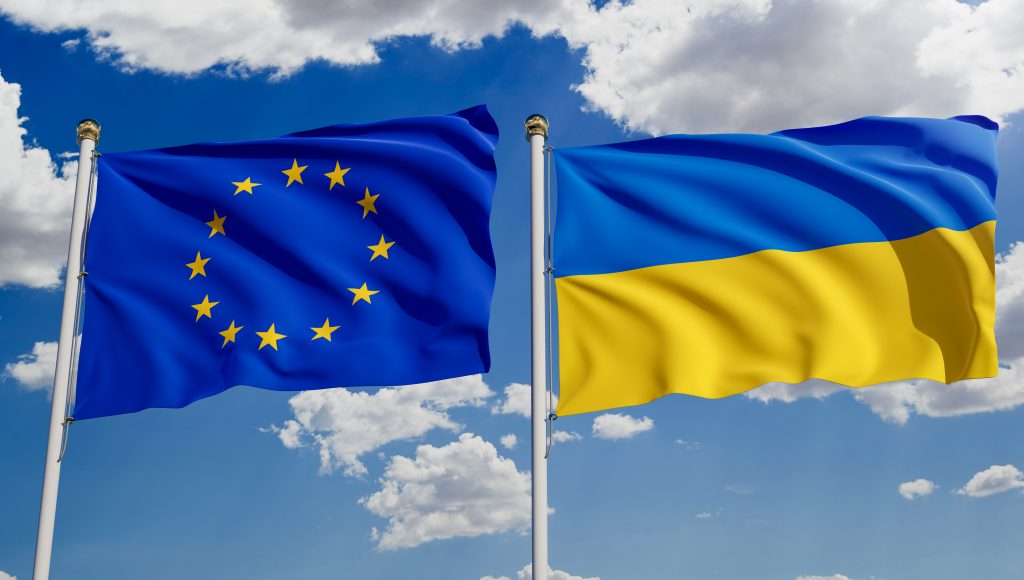
Orbán’s Veto on Aid to Ukraine
- After the approval of accession talks with Ukraine, EU leaders were blocked from supplying Ukraine with additional aid after a veto by Hungary. The budget proposal would have seen the EU sending €50 billion to Kyiv. EU leaders are expected to revisit the issue during an emergency summit at the end of January or the beginning of February. (Reuters; see also Euractiv, Bloomberg, Politico, EU Observer, Le Soir, Bloomberg)
- Given that Ukraine’s defenses are under strain and it needs to continue to supply its counterattack against Russia, the EU’s inability to deliver on its aid promises has generated frustration. Excluding Hungary, the other EU leaders said they would work to supply Ukraine with a package that would be approved by Orbán or that could bypass Orbán’s approval to continue to support Ukraine. (AP News)
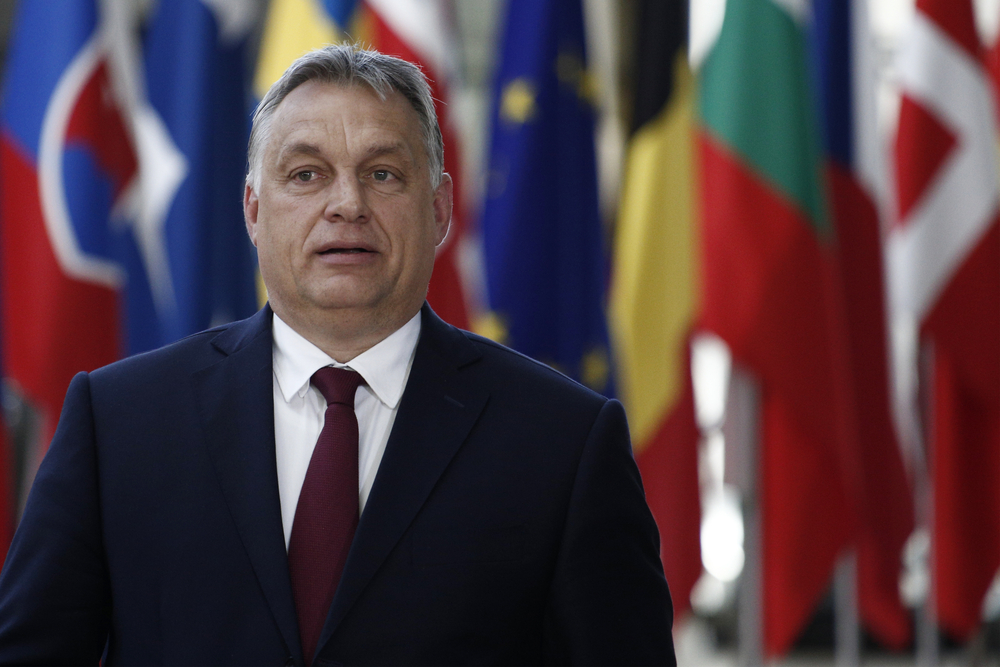
Zelenskyy in the United States
- Zelenskyy made his case for additional aid for Ukraine to U.S. lawmakers. Zelenskyy was invited to the White House and Congress, facing increasing opposition from Republican lawmakers questioning additional aid. Zelenskyy said that opposition from Republicans only “inspires…Putin and his sick clique.” (Reuters; see also AP News, AP News, AP News, Euractiv, Euractiv, Bloomberg)
- In response to stalled U.S. commitment to Ukraine, German Defense Minister Boris Pistorius said that Europe should anticipate a future reduction of U.S. involvement in Europe and that the EU should increase its security and defense capabilities. (Politico)
- Kyiv’s Foreign Minister Dmytro Kuleba said that the EU should not wait for the United States to make decisions on military and humanitarian aid, saying that “Europe provides a lot of support and has the capacity to continue providing it” and “this psychological kind of dependence on the position of the United States is also an element of the game.” (Politico)
- The European Council also stressed the “importance of strengthening European security and defense to deliver an ambitious geopolitical Union,” saying that the EU “needs to take more responsibility for its own security and defense.” (Agence Europe)
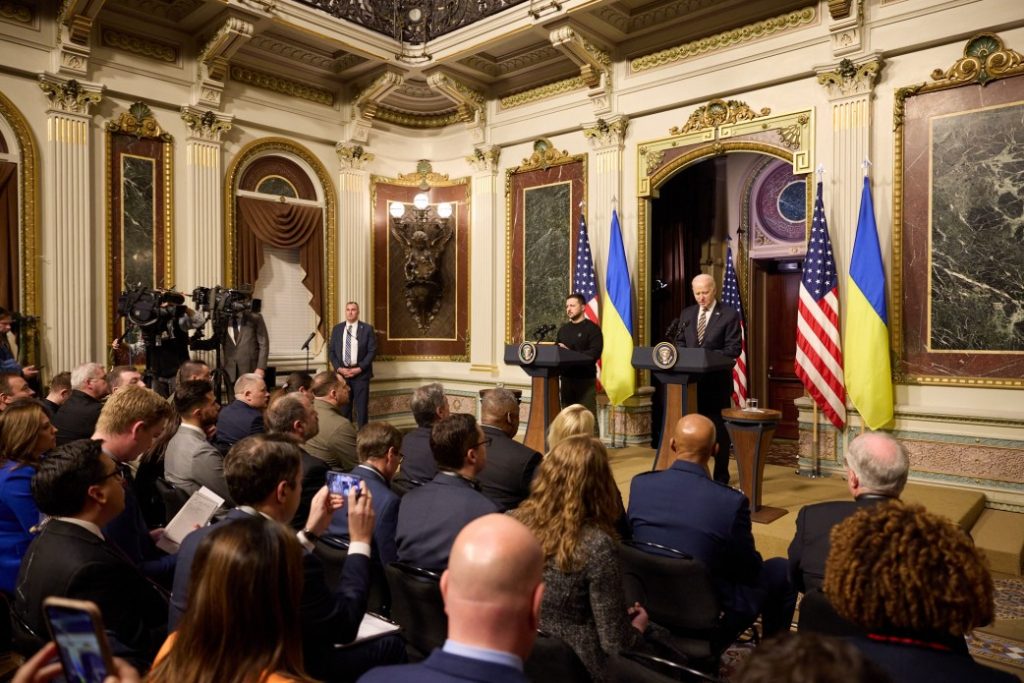
Drone Attacks After Stalled Funding
- Ukraine and Russia each reported dozens of attempted drone attacks after Hungary’s veto of additional aid to Ukraine, signaling each side’s desire to disprove claims that the war is now deadlocked. (NBC News; see also AP News, Le Soir)
NATO Secretary-General Warns of Further Russian Attacks in Europe
- NATO Secretary-General Jens Stoltenberg warned that if Russia defeats Ukraine, Russian President Vladimir Putin will wage war elsewhere in Europe, with aggression not stopping in Ukraine. He said, “The only way to reach a just and lasting solution is to convince President Putin that they will not win on the battlefield. And the only way to ensure that President Putin realises that he is not winning on the battlefield is to continue to support Ukraine.” (Politico)
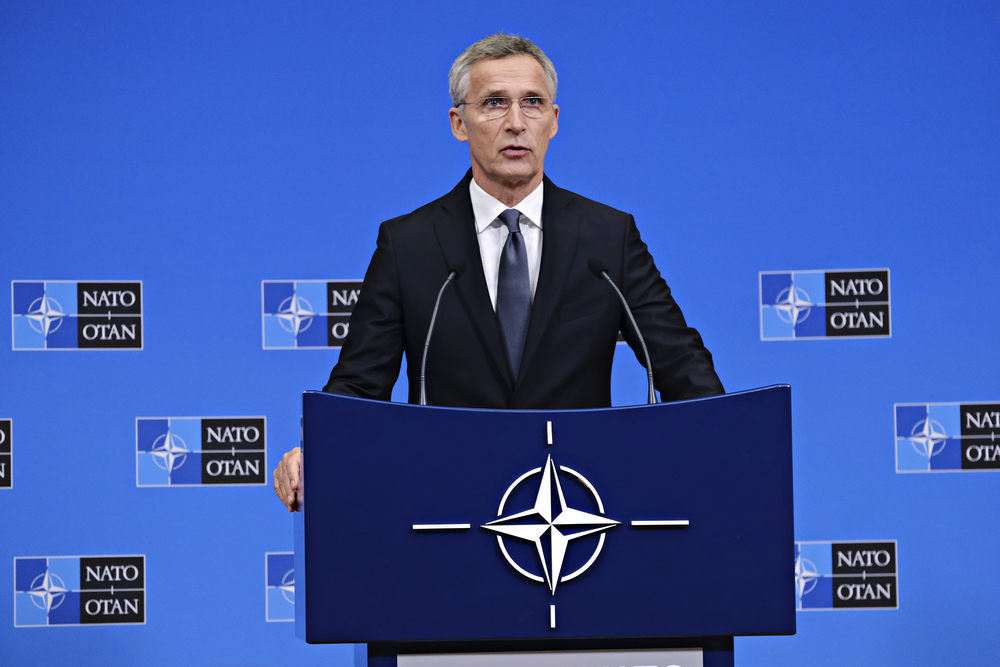
Putin Press Conference
- For the first time since his invasion of Ukraine, Putin answered questions from ordinary Russians and the press. Asked whether “there will be peace,” Putin answered that it would come “when we achieve our goals,” signaling that the Kremlin is not open to a peace deal or reversing its actions. (Politico; see also Euractiv)
- Putin said that he would fight Ukraine until Moscow secured Ukraine’s “demilitarisation,” “denazification,” and neutrality, taking an unwavering stance on Ukraine ahead of Russian Presidential elections. (Reuters; see also Reuters)
Cyberattack on Ukraine
- After 24.3 million customers lost phone reception, Kyivstar, Ukraine’s largest mobile and internet provider, said that Russian hackers had shut down its services. Phone reception has been essential in Ukraine, as smartphones are used to send air raid alerts, donations to the army, and money transfers to Ukrainians living in Russian-occupied zones. Monobank, Ukraine’s largest digital banking service, also reported a massive cyberattack. (Politico)
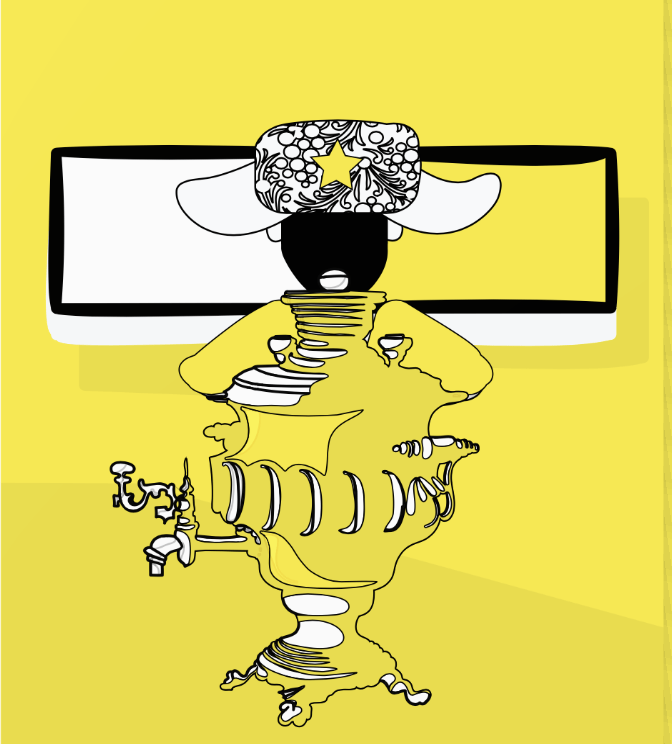
Raising Money from Russian Assets for Ukraine
- The European Commission presented a plan to use proceeds from Russian assets frozen in the EU to help rebuild Ukraine. The proposal must be unanimously approved by EU countries. Since Putin’s invasion of Ukraine, earnings from assets worth about €200 billion have been the subject of debate, as the EU desires to use those revenues. (Politico; see also Euractiv, EU Observer)
Poland’s New Government
- As new Polish Prime Minister Donald Tusk takes office, he has announced that his government will continue to ban Ukrainian agricultural imports, a move started by the populist Law and Justice government that has been a source of tension between Warsaw and Kyiv. (Politico)
- Tusk still vowed that his government would help neighbouring Ukraine, pledging that Poland would be a stable ally of NATO and European leader. (AP News)
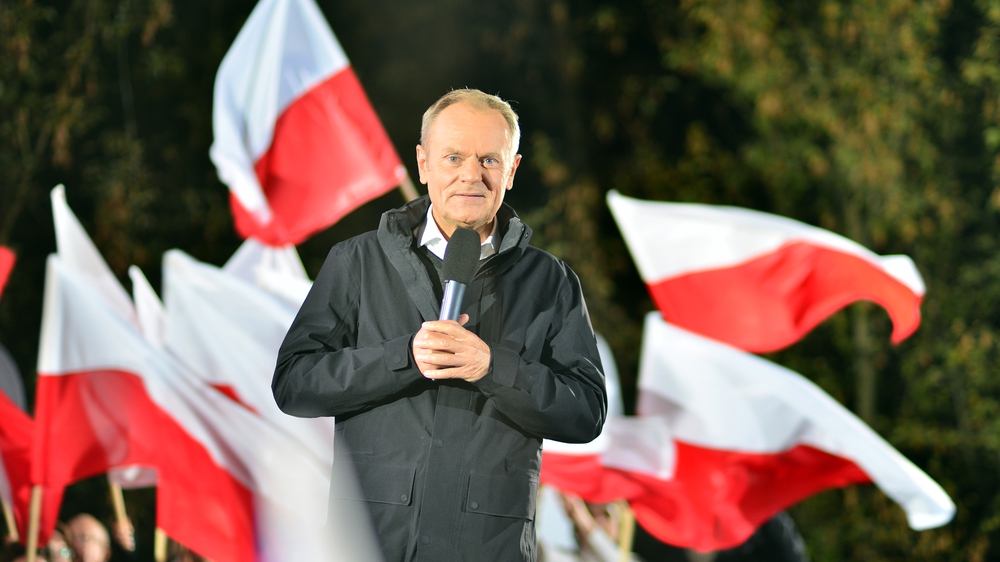
Military Aid for Ukraine
- Britain will give two Royal Navy minehunter ships to Ukraine as Ukraine grapples with the blockage of the Black Sea by Russia. The ships are designed to “clear mines to make waters safe for bigger vessels,” and “would help Ukraine save lives at sea, and open up export routes, which have been severely limited by the Russian invasion.” (Politico)
- Bulgaria’s parliament approved additional aid to Ukraine, including portable anti-aircraft missile systems and surface-to-air missiles of various types. The missiles are either defective or redundant and cannot be repaired in Bulgaria, but Ukraine has the necessary facilities to repair or repurpose the parts. (AP News)
Slovak Truckers End Blockade
- Slovak truckers ended their blockade of the only freight border crossing with Ukraine after demanding that the EU reintroduce restrictions on access to the EU for Ukrainian trucking firms rerouted after Russia’s invasion. (Reuters)
Sanctions on Russia
- EU leaders agreed to more sanctions against Russia. Included in the sanctions is a phased ban on Russian diamond imports. Sanctions are designed to cut off revenues and military equipment aiding Russia’s military. (Reuters; see also Euractiv)
- However, Austria has been “blackmailing” Ukraine using EU sanctions in the fashion of Hungary in an attempt to protect a bank doing business in Russia. (EU Observer)
- The United States announced new sanctions targeting Russia’s weapons suppliers, hitting people and firms from Russia to China to Turkey to the United Arab Emirates. The economic and diplomatic sanctions came as Zelenskyy visited the United States, making Russia the most sanctioned country in the world but not yet delivering a “knockout punch” to Russia’s economy. (AP News)
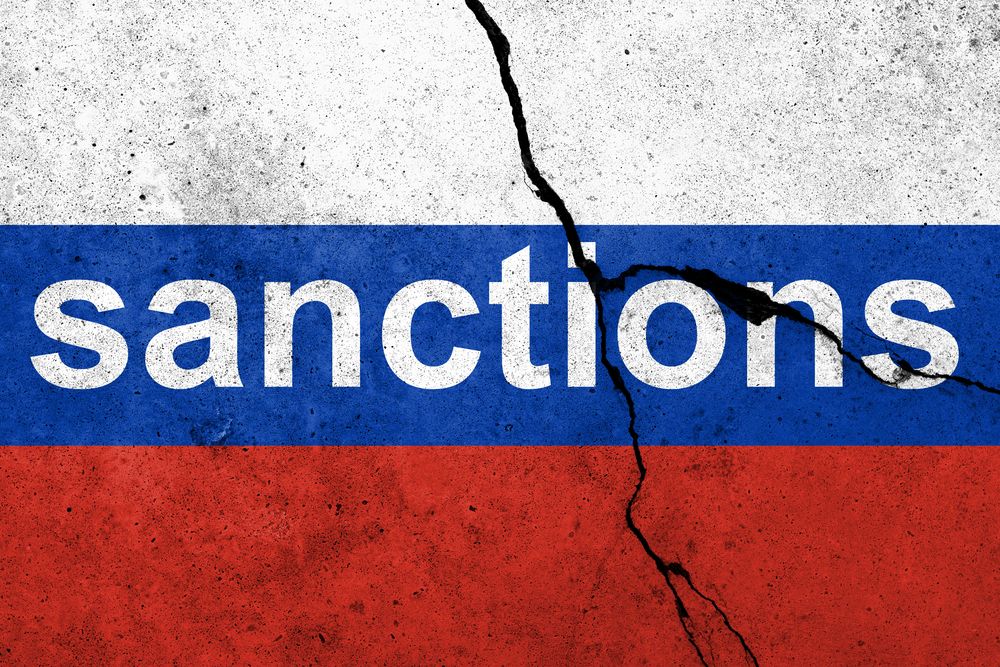
Russian Volunteers Joining Ukrainian Ranks
- A number of Russian volunteers have joined Ukraine’s defense against Russia. Some units with Russian nationals are officially a part of the regular Ukrainian army. These fighters undergo security checks before being deployed to the front lines of eastern Ukraine. (AP News)
Russian Missile Attacks on Kyiv
- A Russian missile attack on Kyiv wounded at least 53 people. All missiles were intercepted by Ukraine’s air defenses, but their debris struck homes and a children’s hospital. (AP News; see also Euractiv)
Author: Sophie Adams-Smith, Media Analyst, Promote Ukraine






 UA
UA FR
FR DE
DE




